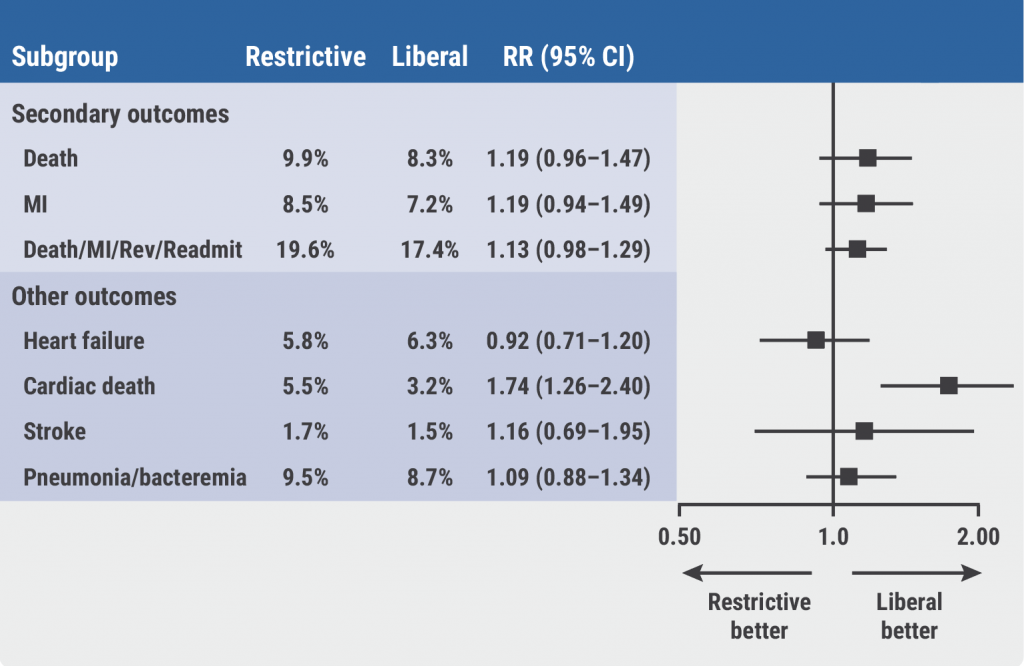"Counting the number of risk factors could be a simple way for clinicians to identify patients considered for PCSK9 inhibitor therapy after acute coronary syndrome," Dr. Petr Ostadal with Na Homolce Hospital, in Prague, Czech Republic, and colleagues suggest in a paper in The Lancet Diabetes & Endocrinology.
The authors of a linked comment say this analysis shows that "every additional metabolic risk factor, other than low HDL cholesterol, identifies a population at greater and greater residual cardiovascular risk and for whom reducing LDL cholesterol results in greater absolute risk reduction."
"Therefore fewer patients need to be treated to prevent each cardiovascular event, resulting in greater cost effectiveness," write Dr. Traci Turner and Dr. Evan Stein with the Metabolic and Atherosclerosis Research Center, in Cincinnati, Ohio.
The placebo-controlled ODYSSEY OUTCOMES trial included more than 18,000 patients with acute coronary syndrome and elevated atherogenic lipoproteins, despite high-intensity or maximum-tolerated statin therapy.
The trial showed that patients randomly allocated to alirocumab had a reduced relative risk of major adverse cardiac events (MACE) regardless of diabetes status.
However, the association of metabolic risk factors (hypertension, hypertriglyceridemia, low HDL cholesterol, hyperglycemia, obesity) with risk of MACE in these patients and effect of alirocumab according to the number of metabolic risk factors was unknown.
The post-hoc analysis focused on patients in the alirocumab and placebo groups who had three or more metabolic risk factors.
In the placebo group, MACE incidence strictly increased with each metabolic risk factor, from 7.8% with no risk factors to 19.6% five risk factors (hazard ratio, 1.18 per metabolic risk factor).
Alirocumab therapy reduced the relative risk of MACE irrespective of the number of metabolic risk factors, but the absolute risk reduction (aRR) increased with the number of metabolic risk factors, from 0.7 percentage points with no risk factors to 3.9 percentage points with five risk factors.
Similarly, when patients with diabetes were excluded, the incidence of MACE in the placebo group increased from 7.7% in patients with no metabolic risk factors to 14.6% in those with five metabolic risk factors and the aRR with alirocumab increased from 0.91 percentage points in patients with no metabolic risk factors to 3.82 percentage points in those with five factors.
The comment authors say this analysis "provides a relatively simple scoring system of metabolic risk factors to more appropriately, and cost-effectively, target treatment with PCSK9 inhibitors in secondary prevention."
"Despite intense and expensive efforts over the past 15 years to reduce the high residual risk in these patients by modulating other atherogenic or anti-atherogenic lipoproteins with fibrates, niacin, and CETP inhibitors, all have essentially failed," Dr. Turner and Dr. Stein write.
"Thus, further LDL cholesterol reduction, especially with agents which enhance clearance via the LDL cholesterol receptor, along with measures to reduce metabolic risk factors or improve glucose control, currently seem to be the most effective and safest way to reduce residual cardiovascular disease risk in these patients," they add.
Funding for this analysis was provided by Sanofi and Regeneron Pharmaceuticals. Several authors have financial relationships with the companies.
SOURCE: https://bit.ly/37xCfMt and https://bit.ly/3JWfgb5 The Lancet Diabetes & Endocrinology, online April 1, 2022.
By Reuters Staff
Posted on
Previous Article
« Should tomosynthesis replace mammography? Next Article
Adding ivosidenib to azacitidine improves survival in IDH1-mutated AML »
« Should tomosynthesis replace mammography? Next Article
Adding ivosidenib to azacitidine improves survival in IDH1-mutated AML »
Related Articles
September 8, 2020
TWILIGHT sub-study: complex PCI patients

© 2024 Medicom Medical Publishers. All rights reserved. Terms and Conditions | Privacy Policy

